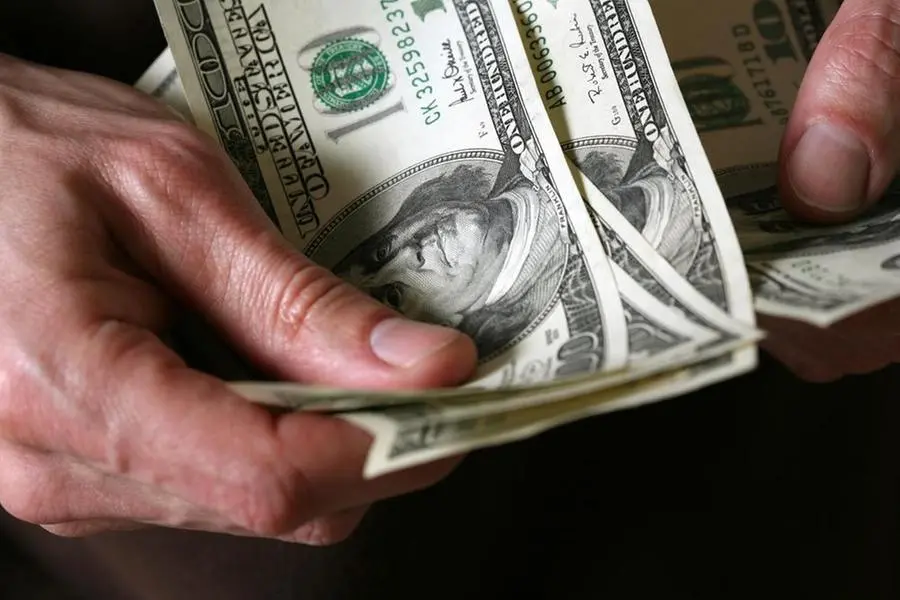PHOTO
The dollar climbed on Monday and cryptocurrency bitcoin hit a three-month high as a rise in U.S. bond yields and the looming presidential election continued to impact markets.
Currency moves last week were driven by the European Central Bank's dovish rate cut and strong U.S. data that scaled back expectations for how fast U.S. rates can fall, particularly if former President Donald Trump wins the presidency.
The dollar index =USD, which measures the greenback against major rivals, was last up 0.17% at 103.63.
It fell 0.3% on Friday as risk appetite picked up broadly across markets after China announced more details of its broad stimulus package, but logged 0.55% gains for the week.
The euro fell 0.16% to $1.0849 EUR= and sterling GBP=D3 slipped 0.18% to $1.3025.
The strength of the dollar has "in large part been a rates and relative growth story", said Erik Nelson, macro strategist at Wells Fargo.
"You've had some relatively solid U.S. data, starting with the jobs report earlier this month. You've had decent retail sales, GDP is tracking pretty well this quarter. On the other side Europe's not doing quite as well, the ECB is on the dovish side… so it's been this divergence story."
Polls showing improving odds of former President Donald Trump winning the Nov. 5 election are also helping the dollar, analysts say, since his proposed tariff and tax policies are seen as likely to keep U.S. interest rates high and hurt trading partners.
Bitcoin got a lift as a Trump administration would be expected to take a softer line on cryptocurrency regulation. It was last down 0.1% at $68,333 BTC= after earlier hitting $69,487, its highest since late July.
YEN DOWN
The yen JPY=EBS was down 0.24% at 149.89, having earlier breached the 150 level, which it did briefly last week for the first time since early August.
The clearest way to express the Trump tariff risk was to buy dollars versus the euro, Swiss franc and Mexican peso MXN=, Chris Weston, head of research at Australian online broker Pepperstone, said in a note.
"Traders need to decide if now is the right time to start placing election trades with greater conviction," Weston said.
Last week, the yen fell 0.3%, the euro 0.6% and sterling was flat. The Mexican peso MXN= fell 3%.
The euro EUR=EBS is down more than 3% in three weeks and has fallen through its 200-day moving average, and is parked near a 2-1/2 month low.
The gap between U.S. and German 10-year bond yields DE10US10=RR has widened to around 189 basis points (bps) as U.S. yields have climbed in recent weeks while German ones have declined.
Data on Monday showed German producer prices fell more than expected in September, declining 1.4% year-on-year, mainly due to a drop in energy costs.
Yields in Britain too have moved against the pound this month on weaker inflation readings and expectations Finance Minister Rachel Reeves will announce a bond-friendly budget on Oct. 30.
The spread between U.S. and gilt yields GB10US10=RR has gone from being 24 points in sterling's favour to 3 points negative.
With no major economic events due this week, market focus will be on corporate earnings and the U.S. election.
Japan will hold a general election on Sunday, Oct. 27. While opinion polls vary on how many seats the ruling Liberal Democratic Party (LDP) will win, markets have been sanguine that the LDP along with junior coalition partner Komeito will prevail.
(Editing by Sam Holmes, Jamie Freed, Ed Osmond and Christina Fincher)





















